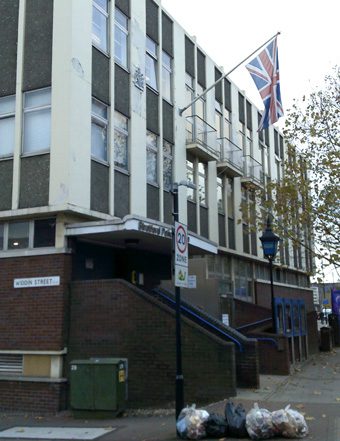How well are police doing at doing digital forensics – capturing evidence from devices such as smartphones and computers? According to a report by His Majesty’s Inspectorate of Constabulary and Fire & Rescue Services (HMICFRS), some forces are overwhelmed and do not have a clear understanding of what digital forensics are.
Victims face a postcode lottery (as with other services they receive, from the police and other public services); some forces start digital forensic examinations within weeks of a crime being reported, while others, the official inspectors found, took 18 months. Police cannot take on the technological challenges alone, due to the expense and work often being beyond the police’s abilities. There needs to be a co-ordinated effort to work with forensic providers and others in the private sector, the inspectors said, ‘yet we found little evidence of this happening’.
For example on storage of data, the most likely-looking solution is in the cloud; His Majesty’s Revenue & Customs (HMRC) now uses the cloud for storing and examining digital data. But few forces are going for the cloud, the inspectors found, and UK policing is still without national guidance. One of the report’s nine recommendations is for police and the Home Office to work with the private sector ‘to design an alternative operating model that would provide effective and sustainable digital forensic services to support police investigations’.
His Majesty’s Inspector of Constabulary Matt Parr said: “The rapid emergence of a digital society has created a huge opportunity for police to gather new types of evidence and identify criminals. But in our inspection, we didn’t see enough examples of policing making effective and efficient use of digital forensics.
“Many forces didn’t have a sufficient level of understanding of the work involved to recover evidence from mobile phones. Delays, lack of resources and lack of adequate training means some victims are being let down and officers are missing their chance to bring offenders to justice. During our inspection we found more than 25,000 devices waiting to be examined, and this doesn’t take into account all the devices already in the system.
“Some forces are showing promise, and we did see examples of good practice. But we found little evidence of this good practice being more widely shared and adopted by others. There is an enormous gulf in performance that cannot continue – it is unacceptable that victims in some force areas receive a significantly better service than others.
“The demand in digital crime will only continue to grow, so police leaders need to work with the Home Office and Crown Prosecution Service to tackle this immediately. Our report makes nine recommendations to address these issues. It is clear from our inspection that victims cannot afford to wait any longer for police to start taking this more seriously.”
For the 49-page report visit the HMICFRS website.
Comment
At the Association of Police and Crime Commissioners (APCC), the Digital Forensics Lead is Cambridgeshire and Peterborough PCC Darryl Preston,. He said: “Forensics is vital and underpins our entire criminal justice system. If that goes wrong, our criminal justice system fails. It is vital improvements are made across the board so that policing does not fall behind in this digital revolution.
“It is simply unacceptable for victims to experience a postcode lottery service. We know there are pockets of really great work going on across England and Wales and this best practice must be shared and replicated if we are to ensure we are delivering the best service to victims.
“As national lead for digital forensics I will be liaising closely with our national partners to ensure system-wide improvements are embedded and as PCCs we will be holding our Chief Constables to account for their progress delivering on these.
“Standards are set by the Forensic Science Regulator by which forces must comply. We must see urgent improvements made and these standards met if we are to avoid delays in perpetrators being brought to justice and if we are to truly deliver a service that victims rightly expect and deserve.”
Picture by Mark Rowe, Met Police station, Stratford, east London.










